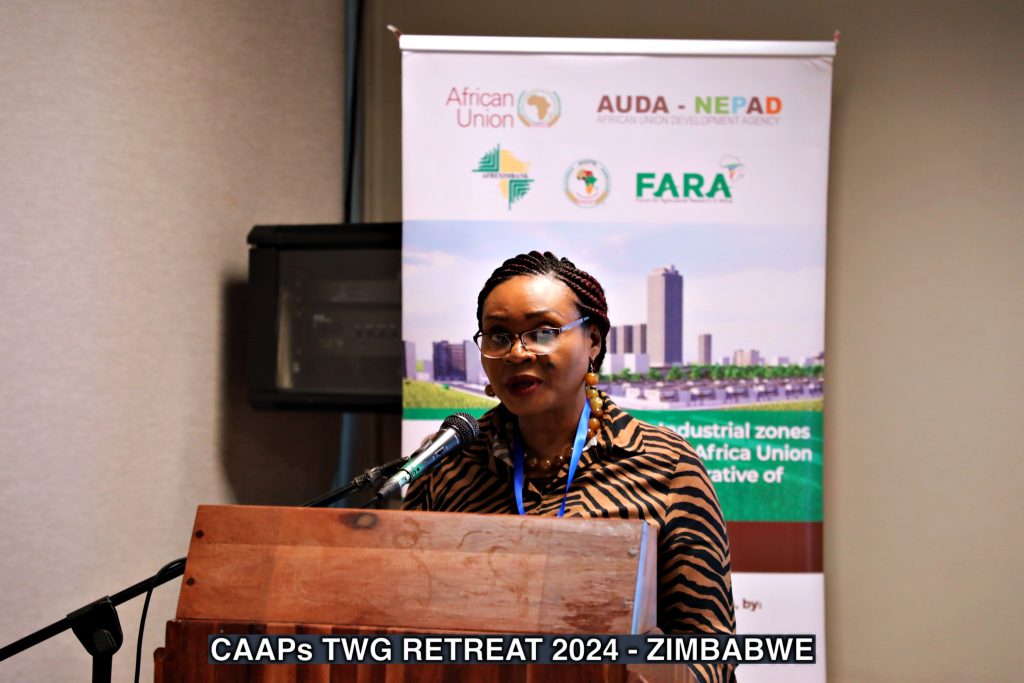|
Getting your Trinity Audio player ready...
|
The Head of Rural Development Division (ARBE) and Chair of the CAAP-TWG (AUC), Dr. Janet Edeme, has reiterated that establishing regional agro-industrial hubs will reduce Africa’s $50 billion yearly food imports.
This will also enhance agricultural productivity and stimulate economic growth among African countries, as this aligns with the “broader vision of the African Union to achieve sustainable development and prosperity for all its citizens,” she explained.

Speaking at the 2024 Planning Retreat of the CAAPs Technical Working Group in Harare, Dr Edeme acknowledged the hurdles in transforming Africa’s agricultural landscape and called on stakeholders to “remember that our success depends on our ability to work together, share knowledge, and leverage the strengths of each partner. The challenges we face are significant, but so are the opportunities.”

She further stated that the “outcomes of this retreat will shape the future of the CAAPs initiative. We aim to finalize comprehensive plans, secure commitments, and outline a clear roadmap for the implementation of our demonstration projects. These projects, as models of integrated agro-industrial development, will pave the way for large-scale investments and policy innovations across Africa.”
About the CAAPs
The Common African Agro-Parks Programme (CAAPs) was initiated in 2019 as one of the concrete initiatives of the Comprehensive African Agricultural Programme (CAADP) to be implemented within the framework of the African Union (AU) Agenda 2063 in order to achieve the CAADP Malabo commitments, particularly the commitment to “triple intra-African trade in agricultural commodities and services.”
CAAPs emerged from the major recommendations of the inaugural CAADP-Biennial Review (BR) Report presented to the 2018 AU Assembly of Heads of States, where recommendations were formulated for the AU Commission to initiate continental actions that shall aim at: i)- boosting regional trade for agricultural commodities by increasing locally processing of key agricultural products and their respective value chains; ii)- promoting and facilitating increased consumption of locally and regionally produced agricultural commodities; iii) -achieving self-sufficiency and lowest possible importation of key agriculture commodities in Africa; and iv)-stimulating local and regional private sector investments in agriculture. The implementation of the CAAPs will assist Africa in reclaiming the roughly USD50 billion per year African Food Import Market, which is currently outsourced to the rest of the world.


